
There are two job markets for recent graduates
The employment prospects of Finnish and international students look very different at the moment of graduation. The lack of contacts is a major barrier for the employment of international students.
Work experience
65% of Finnish students accumulate at least one year of work experience in their field during their studies, whereas up to 40% of international students have no work experience at all in their field when they graduate.
- The accumulation of work experience is significantly affected by the fact that, typically, international students are in two-year master's programmes while Finnish students have been studying for 5-6 years when they graduate.
Work experience in one's own field at graduation
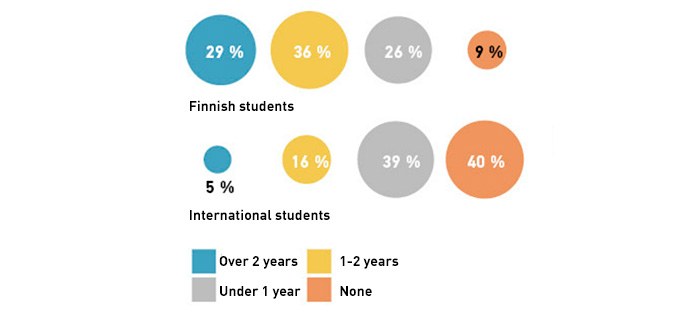
Thesis
Finnish students usually complete their theses for a company, while international students complete theirs for universities or research institutes.
Some two thirds of Finnish students received pay for their thesis work whereas less than half of international students did. Nearly 40% of international students received no funding at all for their thesis work while the same was only true for 16% of Finnish students.
On average, a Finnish student received a salary of €2 654/month for their thesis work in the private sector whereas an international student's average salary was €2 151/month. When the thesis was completed for a university or research institute, the average salaries were €2 111/month for Finnish students and €1 833/month for international students.
- International students have fewer corporate contacts to help them secure thesis commissions.
Who the thesis is made for
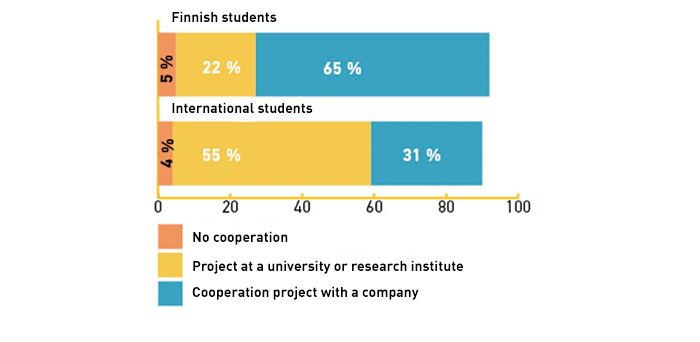
Graduation
At the moment of graduation, only 12% of Finnish students were looking for work while 34% of international students were without a job. Many Finnish students found employment with a familiar company, once again demonstrating the significance of the international students' lack of contacts.
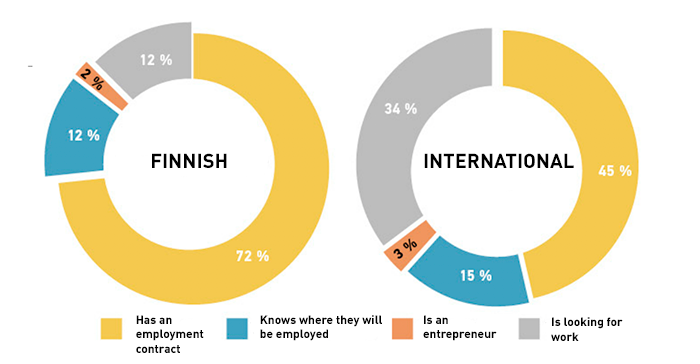
Employment
At the moment of graduation, Finnish students are typically in permanent employment in the private sector. Fixed-term employment relationships and employment at universities are more common among international students.
- Postgraduate studies are a very enticing alternative to employment for international students. A thesis completed as part of a university project also serves as a route to full-time postgraduate studies.
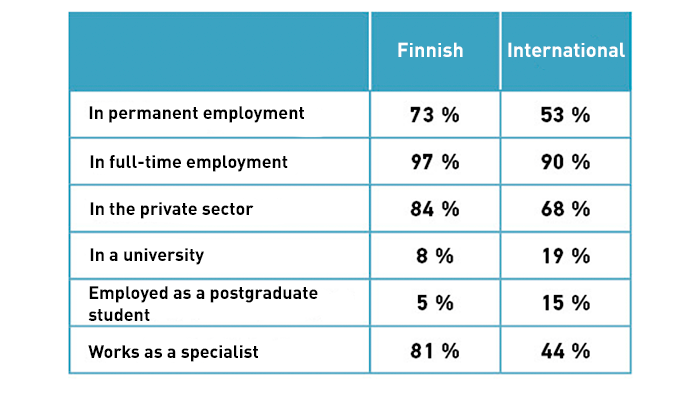
Compensation
The average salary of a Finnish recent graduate is €3 400/month whereas the average salary of an international recent graduate is €2 800/month.
- Part of the difference may be explained by the fact that Finnish students have significantly more work experience as they graduate. Moreover, some of the international graduates are not employed in their own field, which is reflected in the salary level.
Basic salary (€/mo.), median
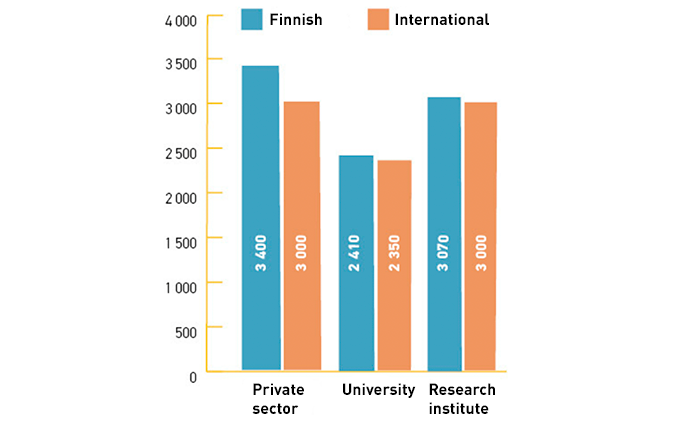
The education is praised by all
78% of Finnish students and 70% of international students would choose exactly the same studies if they could choose again.
15% of Finnish students and 21% of international students would choose the same degree with a different major.
94% of Finnish students and 96% of international students were satisfied with the education they received.
90% of Finnish students and 93% of international students felt that the skills they gained during their studies matched their expectations.
90% of Finnish students and 92% of international students said that the instruction they received was of high quality.
- International students are especially satisfied with the education that they have received.
How the study was conducted:
TEK's Graduate Survey involved academic engineers and architects all over Finland who graduated in 2019. The survey garnered 2 270 respondents, which accounts for 76% of the academic engineers and architects who graduated last year. 77% of the respondents were Finnish, 19% were from outside of the EU and 4% were from other EU countries. The survey was conducted in cooperation with universities of technology.
More results: www.tek.fi/vastavalmistuneet